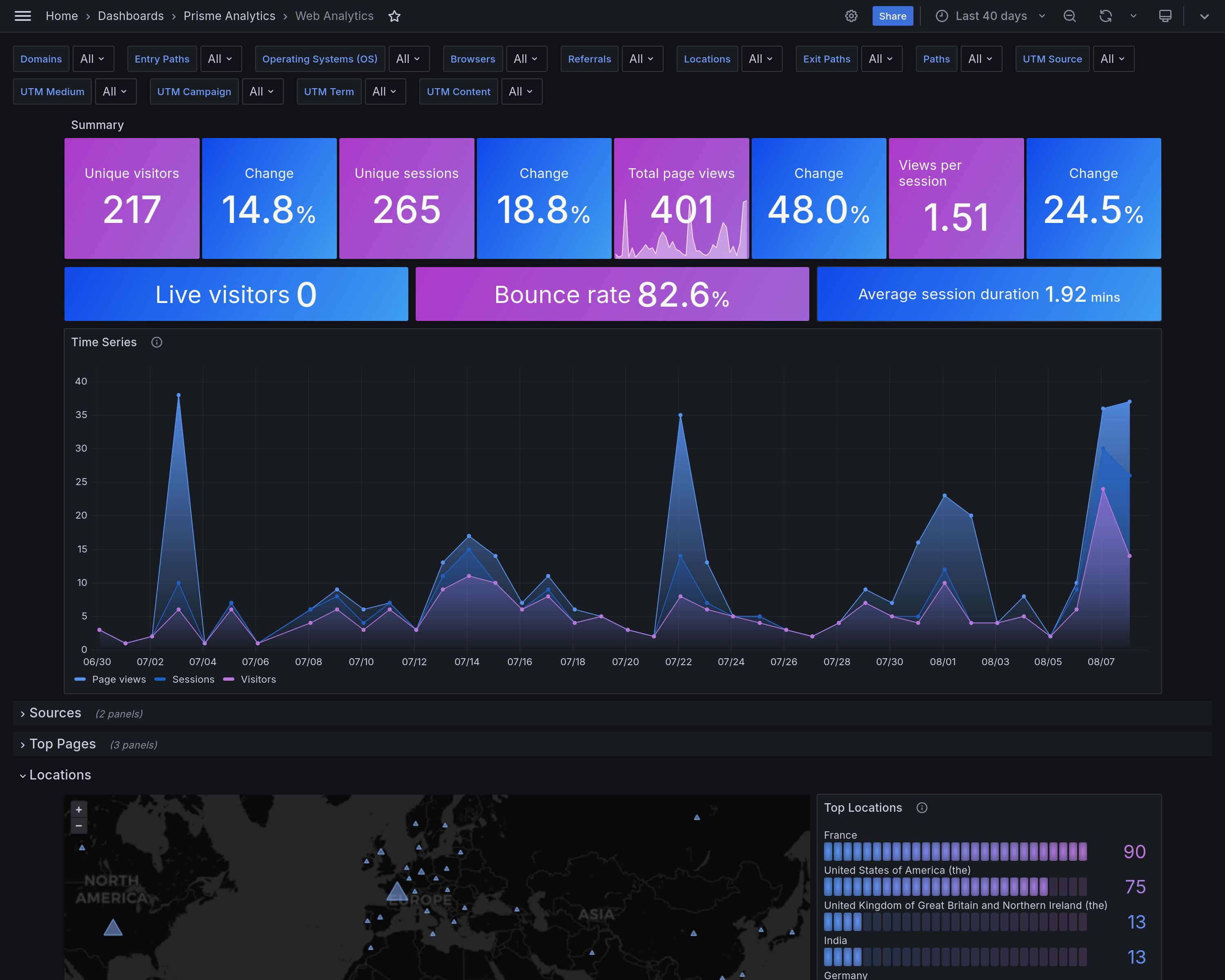Free UTM builder
Easily generate UTM codes for your marketing campaigns in just a few clicks.
Powered by Prisme Analytics.
What are UTM parameters?
Urchin Tracking Module (UTM) parameters were first introduced by Google Analytics' predecessor Urchin and are a widely accepted tool to track the effectiveness of online marketing campaigns. With Prisme Analytics, you can use UTM parameters to break down how many people visited your website and compare the results of your campaigns.
How does a UTM campaign work?
A UTM campaign works by appending specific tags to your URLs, which can then be tracked by analytics platforms like Prisme Analytics. These tags help you understand where your website traffic is coming from and which marketing campaigns are driving the most engagement and conversions.
Why should I use UTM parameters?
UTM parameters allow you to take a closer look at the origin of your website visitors. Prisme Analytics shows where a visitor comes from by the referrer, but this information is not always passed on by the browser. In addition, only the origin website is listed, but not, for example, on which link on a page was clicked. With the help of UTM parameters, you get precise information about which links were clicked on which page and at the same time improve the reliability of your statistics.
What are the UTM parameters and how do I use them?
There are five UTM parameters in total. Namely
utm_source,utm_medium,utm_campaign,utm_contentandutm_term. Typically, the first three parameters are set, and optionallyutm_contentandutm_term.utm_sourcespecifies the source, such as a website or newsletter.utm_mediumcontains the medium used for the campaign, such as social media.utm_campaign, as the name suggests, identifies the campaign. Each campaign is usually given a name, such as Summer Sale.utm_contentandutm_termare used less frequently, but can be very useful for finding out what link a visitor followed and what keywords were used.utm_contentindicates what part of a page or email was viewed. This can be e.g. the header or footer to identify the area where the link is placed.utm_termis used for search terms. For example, if links are displayed as the result of a search, the search terms can be sent with the campaign.
In general, the values for the parameters can be freely chosen. However, they are case sensitive and no spaces can be used. Alternatively, plus signs can be used, which are automatically converted into spaces by Prisme Analytics. UTM parameters should be used only for inbound links, not for links that link to pages on the same website.
Can I manually create UTM tags?
Yes, you can manually create UTM tags by adding parameters to your URLs. However, this process can be time-consuming and prone to errors. Using a UTM campaign generator tool can streamline this process and ensure consistency in your tagging.
Are UTM tags case sensitive?
No, UTM tags are not case sensitive. However, it's a good practice to maintain consistency in your tagging to avoid any discrepancies in your analytics data.
